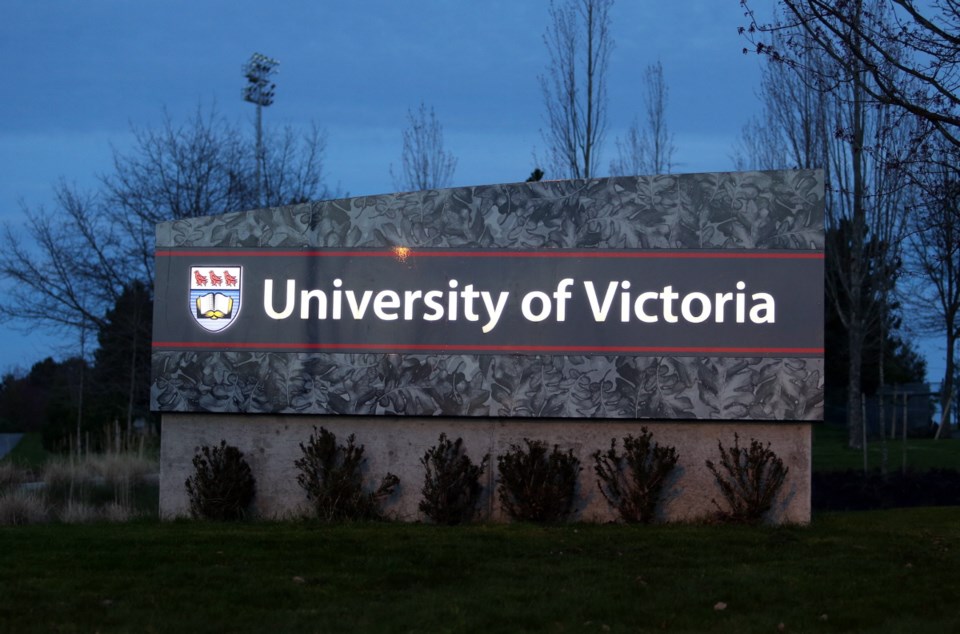A University of Victoria student has launched a class action lawsuit against the university over its refusal to refund parking pass fees after face-to-face classes ended due to COVID-19.
The lawsuit, filed in B.C. Supreme Court, says students have been unable to use their parking passes since on-campus instruction was suspended on March 16.
Aaron Elsser, a fifth-year mechanical engineering student, said he’s frustrated that he’s paying for a full year of parking despite only getting 5 1/2 months of service. The 21-year-old Saanich resident emailed parking services in April asking for a refund of $250 but has not heard back.
“The majority of the service was not able to be used by students and they’re just keeping the money because they think they can,” he said.
The parking pass contract includes an “implied term” that the university keep the campus open and continue to offer in-person classes so that permit holders can reasonably use the parking stalls, the lawsuit claims. Annual parking permits cost $568 and are in effect from Sept. 1 to Aug. 31.
Paul Marck, a spokesperson for UVic, said the university is aware of the lawsuit but cannot comment because the case is before the courts.
The university announced on its website on March 20 that it would temporarily suspend daily or hourly parking fees and would not issue partial refunds for the annual parking passes, according to the statement of facts. UVic president Jamie Cassels announced Monday that the majority of classes will be delivered online this fall.
Marck said the annual permits give students and staff a deep discount of about 73% — $2.37 a day compared to a $9 one-day pass.
“Based on the discount, and in keeping with the university’s Traffic and Parking Regulations, a refund is not being offered,” Marck said in an email. A total of 4,190 annual passes were sold for the 2019-2020 year, including 2,419 to students and 1,771 to staff and other drivers.
Elsser doesn’t buy the argument that because the annual pass is cheaper than the daily rate, it should not be refunded.
“It doesn’t make any sense,” he said.
The lawsuit states that the COVID-19 pandemic amounts to a “frustrating event” that changed the parking permit contract so significantly “that it would be unjust to hold them to the permit contracts’ literal stipulations.”
The lawsuit is seeking a prorated refund with interest, general and special damages for breach of contract and legal costs. Mitchell Selly, the lawyer with MacIsaac & Company who filed the lawsuit, said anyone who purchased a 2019-2020 annual parking pass could be represented in the class action. The university must now file a response, after which the B.C. Supreme Court will decide if the class action can proceed.
Sarina de Havelyn, a University of Victoria Students’ Society board member, said many students are facing financial strain with the lack of summer job or co-op opportunities so she’s not surprised students are concerned about parking fees.
“If students aren’t benefiting from the services that they’re paying for, for example parking fees … it definitely is something I’m starting to hear more and more,” said de Havelyn, a fourth-year political science student.
Parking is considered an ancillary service for the university, Marck said, adding that the university charges market rates to cover expenses such as campus security, maintenance and upgrades to parking infrastructure.
“Parking fees also support the university’s strategy to encourage people to use travel options to campus, as 62% of the UVic campus community chooses sustainable transportation methods, like transit, cycling, walking and carpooling, over the use of single occupancy vehicles,” Marck said. He said in any given year, students, staff and faculty are not parking on campus all 12 months of the year.



